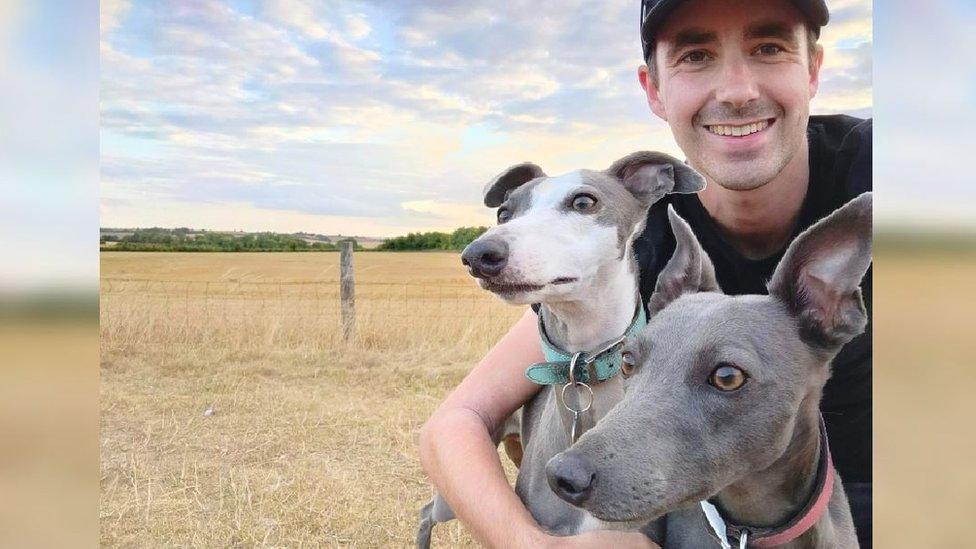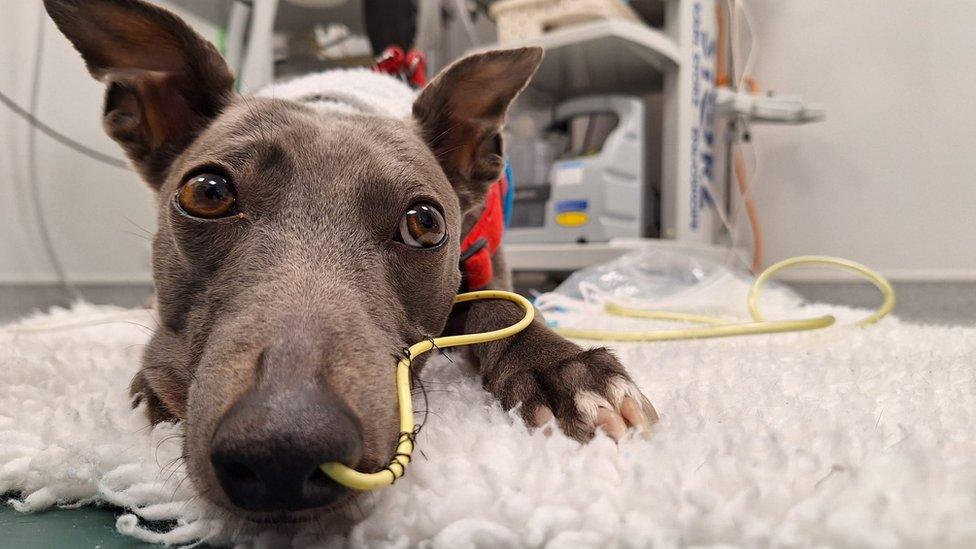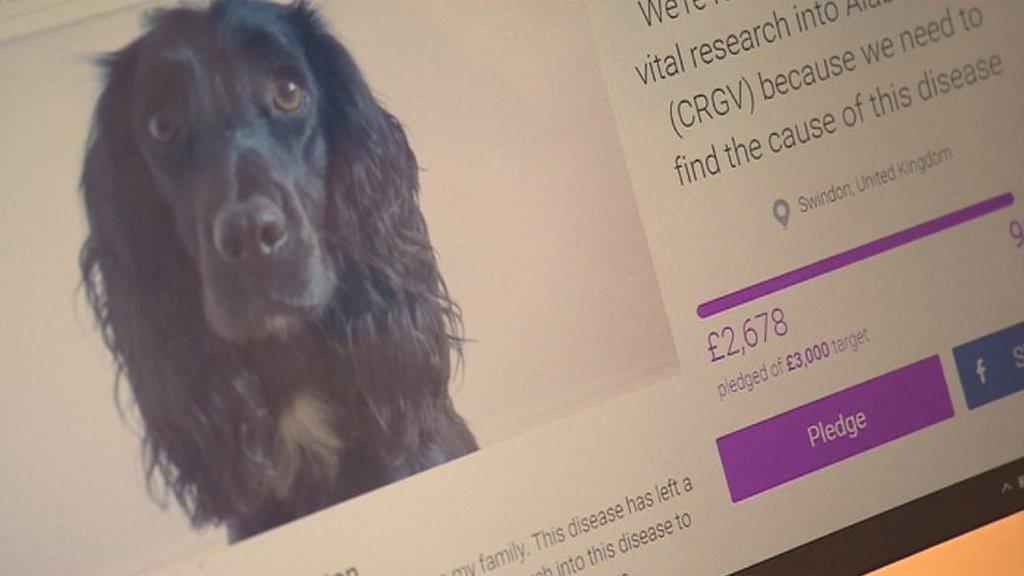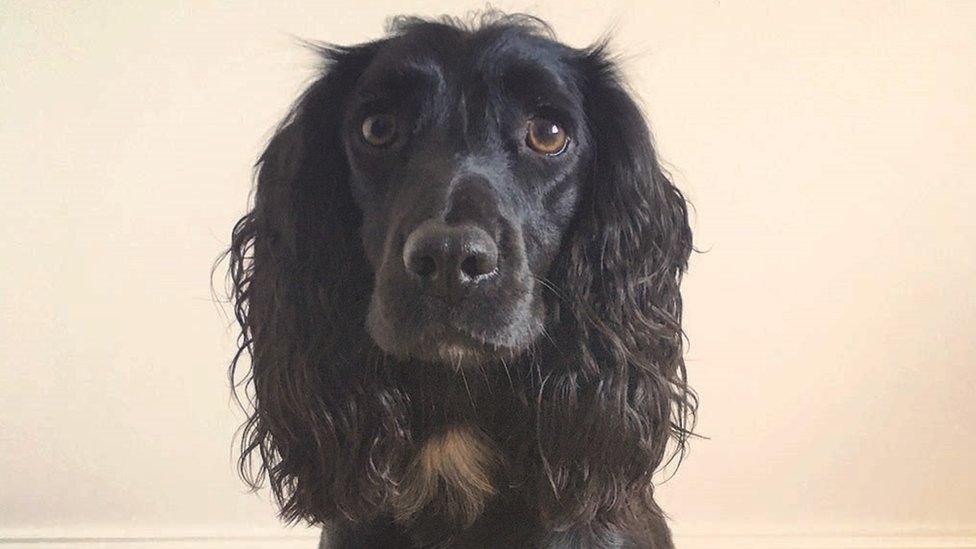Alabama Rot: Grieving dog owner to raise money for research
- Published

Willow (bottom right) died after contracting the rare disease
A grieving owner who lost their dog to a rare disease is hoping to raise £10,000 to help find a cure.
Shaun Reynolds, who lives near Swindon, lost his whippet Willow to Alabama Rot on 5 March.
The disease first appeared in the UK in 2012. Since then, only 318 cases have been confirmed, with affected dogs having only a 10% chance of survival.
Alabama Rot damages the blood vessels in the skin and kidneys, and can lead to organ failure.
Affected dogs often develop ulcers or sores, usually on the bottom part of their legs and stomach, or occasionally in the mouth, which can look like bites, grazes, wounds or stings.
A month of treatment
Though the cause of the disease is still unknown, researchers believe that wet muddy conditions may somehow be linked, as many dogs that died from Alabama Rot had been walking in muddy woodland areas just before becoming ill.
Mr Reynolds now wants to raise awareness of the rare disease and help other owners spot early signs of it.
"Her [Willow's] first symptom was an unexplained limp," he said.
"She'd had a very easy couple of days exercise, she hadn't injured herself so there was no reason for her to be limping.
"After a few days, she was treated for an infection and returned to normal. Then a skin sore appeared, and three days after that, she developed a sickness and became lethargic."
Following a month-long battle, and 10 days in intensive care, vets were unable to save the four-year-old pet.

Willow was treated for kidney failure in intensive care
"There's no real guidance on how to avoid it [Alabama Rot], other than to wash your dog's paws down at the end of a muddy walk," Mr Reynolds continued.
"We knew all about Alabama Rot before she became infected, and we'd hose her feet down after every walk.
"So it definitely doesn't prevent it, but it might help."
Sophie Bell, a vet in Salisbury, says dog owners should seek veterinary advice if they notice any "odd lesions or ulcerations" on their animals.
"It doesn't always progress to the kidneys, but we believe there's a lot of suspected cases," she said.
"That's why your vet will take a blood test for nine days following the first presence of those grazes on the skin. That's the prevalent time that things can shift and go wrong."
Mr Reynolds said the money he raises through his fundraising page will go towards the Alabama Rot Research Fund, with the aim of guiding treatment and prevention strategies, and ultimately finding a cure.
As well as the ongoing call for donations, he said he hopes to organise events to raise money throughout 2024.

Follow BBC Wiltshire on Facebook, external, X, external and Instagram, external. Send your story ideas to us on email, external or via WhatsApp on 0800 313 4630, external.
Related topics
- Published12 January 2016

- Published10 May 2017
